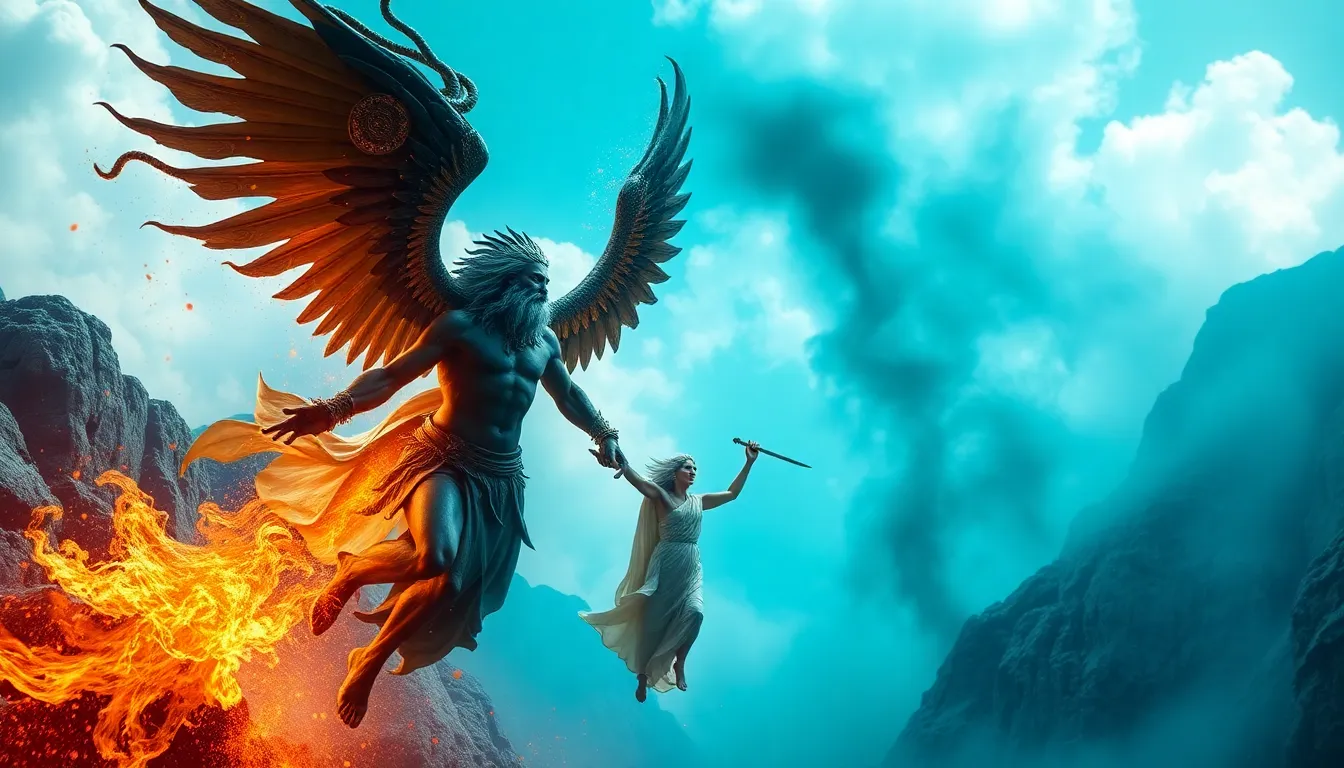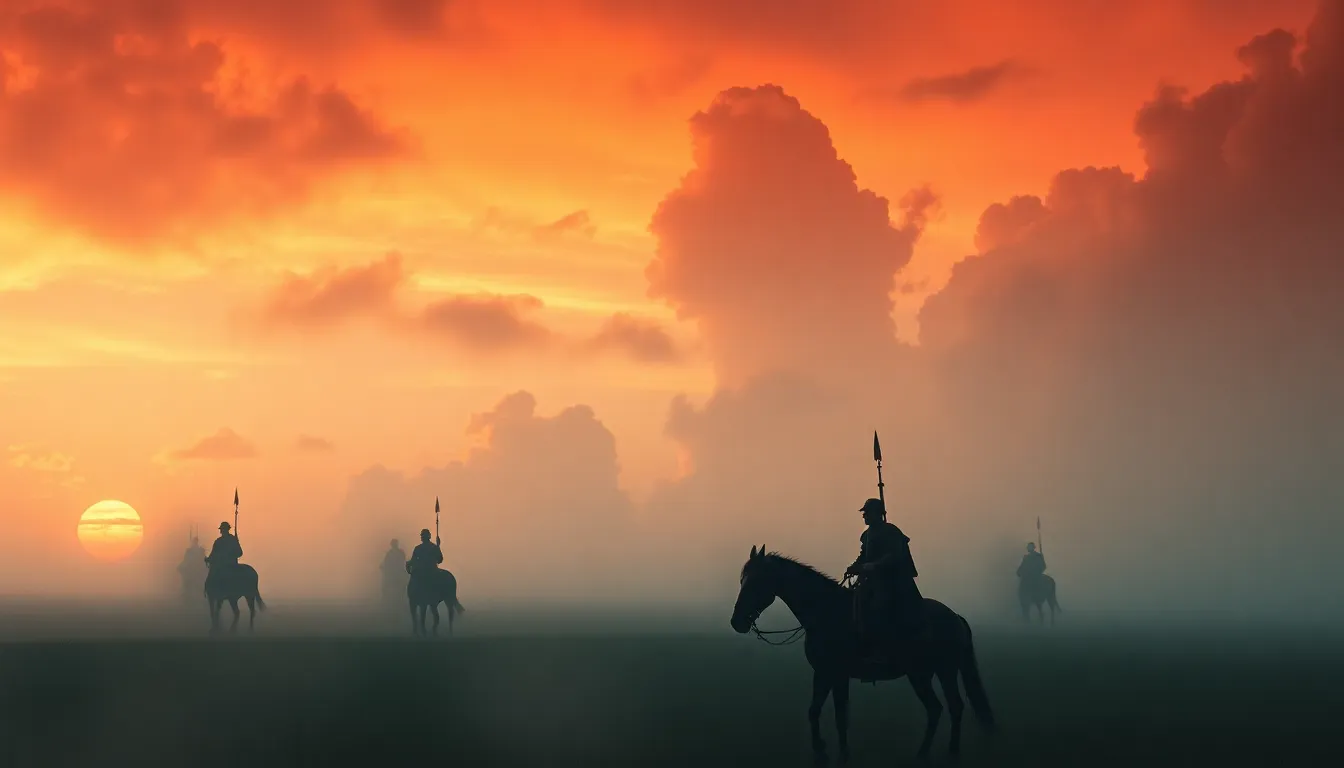From Human to Divine: The Most Inspiring Transformations in Myths
Introduction: The Concept of Transformation in Mythology
Transformation is a fundamental theme in mythology, present across diverse cultures and historical contexts. Myths often explore the journey of individuals as they transition from the ordinary to the extraordinary, highlighting the inherent potential within humanity. These transformation narratives serve not only as entertainment but also as profound reflections on personal growth, identity, and the quest for meaning.
The significance of human-to-divine transformations is particularly noteworthy in storytelling. Such transformations often symbolize the struggle for enlightenment, the pursuit of one’s higher self, or the connection between the mortal and the divine. Through these narratives, cultures articulate their values, beliefs, and the universal human experience of change.
The Hero’s Journey: A Framework for Transformation
Joseph Campbell’s monomyth, commonly known as the Hero’s Journey, provides a framework for understanding the transformative arcs in mythological narratives. This structure encompasses stages such as the call to adventure, the trials and tribulations faced by the hero, and the eventual return with newfound wisdom.
Transformation acts as a catalyst in hero narratives, often prompting the protagonist to undergo significant changes that reflect personal growth. The hero’s transformation is not merely physical but also emotional and spiritual, emphasizing the journey toward self-discovery and fulfillment.
Greek Mythology: The Ascension of Mortals to Godhood
In Greek mythology, the ascension from mortal to divine is a recurring theme, exemplified by various characters who achieve godhood through extraordinary feats or divine favor.
- Case Study: Hercules – Hercules, renowned for his immense strength, undertakes twelve labors as penance for his past actions. His trials lead him to not only prove his valor but ultimately earn him a place among the gods on Mount Olympus, symbolizing the triumph of perseverance and redemption.
- Case Study: Persephone – Persephone’s dual existence as both the goddess of spring and the queen of the underworld illustrates the cyclical nature of life and death. Her transformation through abduction and subsequent return to the surface world signifies the balance between opposing forces and the inevitability of change.
Norse Mythology: The Transformative Power of Trials and Sacrifice
Norse mythology presents transformations that often arise from trials and sacrifices, particularly among its gods.
- The story of Odin – Odin, the All-Father, sacrifices his eye in exchange for wisdom at Mimir’s well. This act of self-sacrifice transforms him into a figure of profound knowledge and understanding, demonstrating that true enlightenment often comes with personal cost.
- The transformation of Loki – Loki evolves from a mischievous trickster to a critical figure in Ragnarok. His transformation reflects the complexities of identity, showing how circumstances and choices can redefine one’s nature and role within a narrative.
Hindu Mythology: Divine Incarnations and Human Experiences
Hindu mythology extensively explores the concept of divine incarnations, known as avatars, which embody the transformative journey between the divine and mortal realms.
- The avatar of Vishnu – Vishnu’s incarnations, particularly Krishna and Rama, illustrate the divine descending into the human experience to restore dharma (cosmic order). Their stories emphasize the transformative power of righteousness and devotion in overcoming adversity.
- The transformative power of devotion and bhakti – In Hindu belief, the path of bhakti (devotion) serves as a transformative force in human lives, enabling individuals to transcend their limitations and connect with the divine. Through devotion, followers experience profound changes in their identity and purpose.
Egyptian Mythology: Mortality and the Afterlife
Egyptian mythology presents a rich tapestry of beliefs regarding transformation, particularly concerning mortality and the afterlife.
- The transformation of Osiris – Osiris, initially a god of fertility, undergoes a transformation into the ruler of the afterlife after his death and resurrection. This narrative symbolizes the cycle of life, death, and rebirth, highlighting the eternal nature of the soul.
- The significance of the soul’s journey – In Egyptian beliefs, the journey of the soul after death, involving trials and judgment, illustrates the transformative potential of mortality. This journey reflects the importance of living a virtuous life to achieve a favorable transformation in the afterlife.
Indigenous Myths: Nature and Transformation
Indigenous myths often emphasize the relationship between humans and nature, highlighting how natural elements facilitate transformation.
- The role of nature in Native American myths – Many Native American cultures tell stories where characters undergo transformations through their interactions with nature, emphasizing respect and harmony with the environment. These narratives often reflect the idea that nature itself is a teacher and guide.
- Transformation tales from African folklore – In African folklore, animals often serve as guides and mentors, facilitating transformation in human characters. These stories illustrate the interconnectedness of all beings and the lessons learned through transformation.
Modern Interpretations: Transformations in Contemporary Storytelling
In contemporary literature and film, mythological transformations are frequently reinterpreted, reflecting modern values and concerns.
- These narratives often explore themes of personal identity, self-discovery, and societal change, allowing audiences to connect ancient stories with present-day experiences.
- Films such as “The Lion King,” which draws on various mythological elements, showcase the hero’s journey and transformation, resonating with audiences through relatable characters and struggles.
Lessons from Mythical Transformations: Inspiration and Personal Growth
The psychological and philosophical implications of transformation found in myths offer valuable lessons for personal growth.
- These stories inspire individuals to embrace change, confront challenges, and strive for self-improvement.
- Mythical transformations serve as metaphors for the human experience, illustrating that adversity can lead to profound personal evolution.
Conclusion: The Enduring Legacy of Transformation in Human Culture
Transformation remains a powerful theme within human culture, transcending time and geography. Myths from various traditions illustrate the universal journey from human to divine, emphasizing the potential for growth and change inherent in every individual.
As we reflect on these narratives, we recognize their relevance in today’s society, encouraging us to embrace our own transformations and seek our higher selves. The lessons derived from these mythical journeys continue to inspire and resonate, reminding us of the profound nature of our existence and the transformative power of storytelling.



